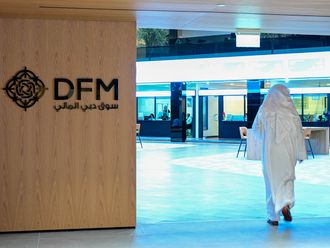Many of you may look forward to your retirement with great enthusiasm. You can start to play golf, join a bridge group, travel the world or just stay in bed each morning until 10am. For those of you who can afford to do so, then your dream may well become reality.
However, for others, retirement may prove more of a challenge as there is more time to fill each day. For maybe 40 years, you have been used to the structure of the workplace, and its comradeship. It is where you have spent the best part of each day, for decades. Now, suddenly, you have lost not only your job status and salary but also your focus, raison d’être and the fellowship of your colleagues at work.
People start to view you in a different way and probably you define yourself differently because your changed status means that your place in society has now altered. As for the company or organisation, whenever a long-serving, experienced employee retires, it means skills and expertise that have been acquired over many years are allowed to ‘walk out of the door’.
Sadly, many employers will just let this happen and the ‘knowledge drain’ becomes commonplace. Instead, what could occur is that companies learn to handle the retirement of skilled staff using a process that facilitates a transfer of knowledge from the ‘old’ to ‘young’.
Retiring employees can bring added value to the organisation, albeit in a different capacity than previously. Their years of insider knowledge about your organisation, your industry and customers, are valuable. And we are not just talking about senior management.
The administrator who books flights and arranges overseas trips or the procurement officer both know where to place orders in order to obtain the most competitive delivery, price and quality. These individuals with such skills are often overlooked and yet they frequently are key in enabling the company maintain its profitability and competitive advantage.
And do not forget the personal relationships and business contacts with suppliers and customers that have been built-up over many years. When these are broken, sometimes contracts are lost and occasionally those contracts can be worth millions. Managements need to be aware of these hidden potential consequences when any long-serving employee retires.
Because even the most talented graduates do not have a knowledge base of experience; mentoring is a way to put ’old heads’ and new ones together. Why not give retirees the option to volunteer as a mentor to their new replacements? Many are happy to do this as it puts a value on their experience and affords them a sense of satisfaction that they still have a part in the future of the company.
At retirement, many people may begin lose self-confidence in themselves and mentoring could give them the boost they need to raise their self-esteem.
Get future retirees to write an instruction booklet on their work, systems, short cuts and contacts. Offer knowledge-retention techniques to capture both explicit and tacit knowledge. The former is usually elicited by simple questioning skills whereas tacit knowledge is less easy to define because people are unaware they have it. Tacit knowledge refers to experiences, stories and creative solutions that have been gained over many years in the job. Both are invaluable.
Celebrate the career of long-serving staff when they leave the organisation so that they leave motivated and on a positive note. This will not only help them in the next chapter of their life but will leave them feeling good about the organisation to which they have been committed for many years.
Whether you are a soon-to-be retiree yourself or an HR department that is managing the retirement process, this is a situation that, correctly, needs planning. Not only will it have a positive effect on the retiree but also upon those who continue to work within the organisation.
After all, we all like to work for a company that recognises that its people are its most valuable resource — don’t we?
Key points
* Be aware that the retention of expertise is important.
* Mentoring is a way of transferring knowledge.
* Retirement should be a win-win situation for everyone.











